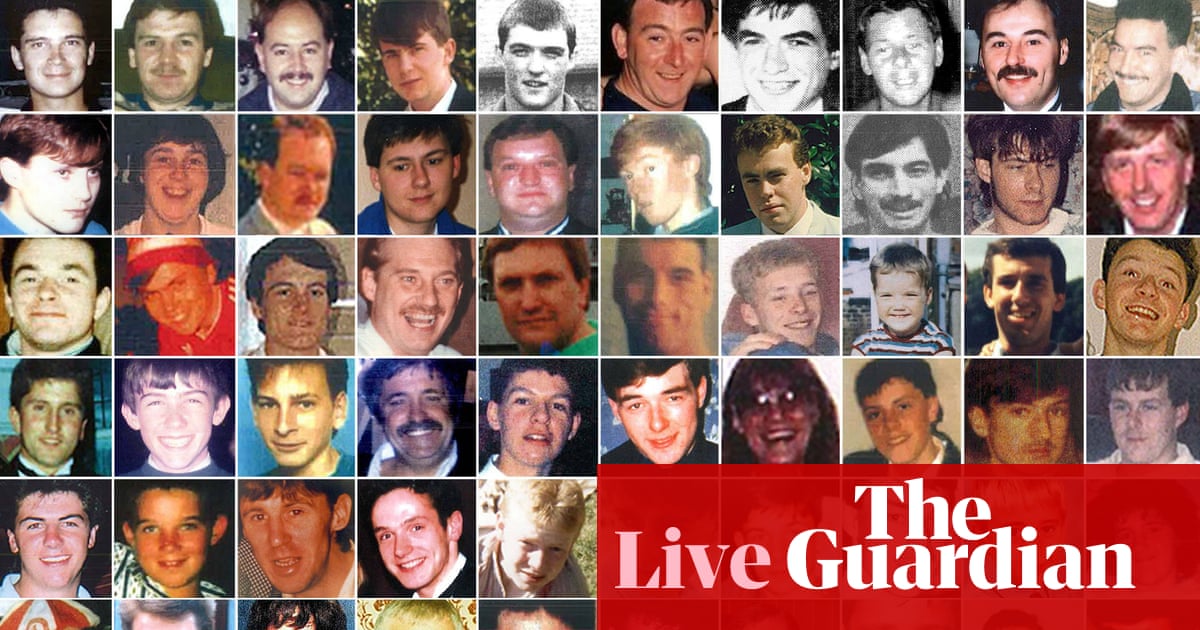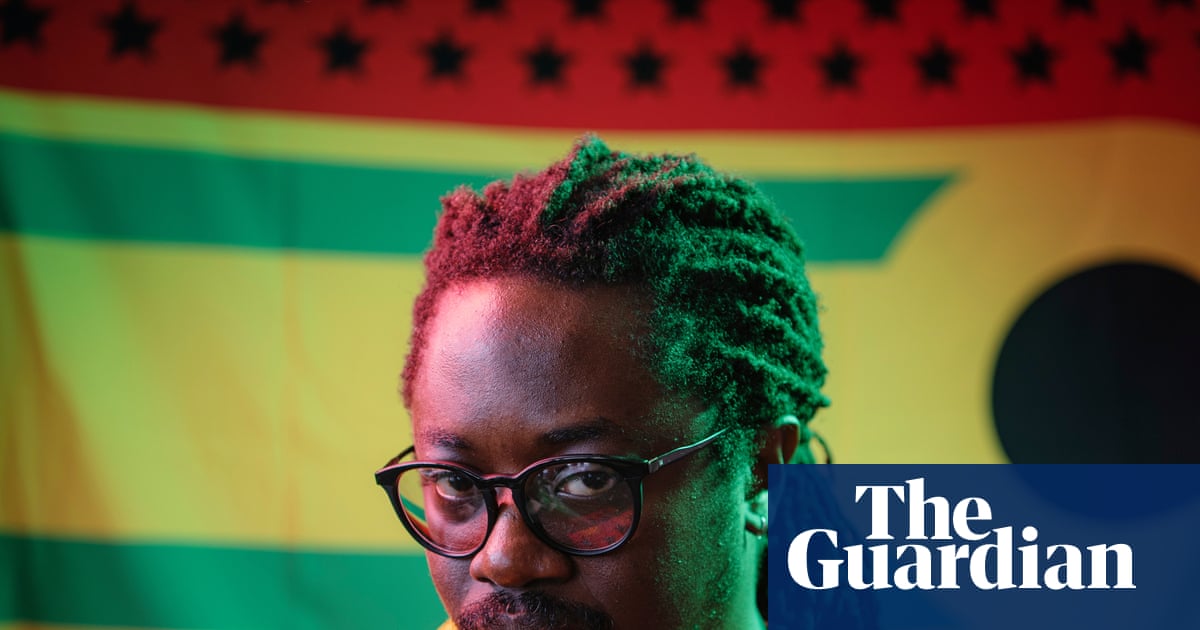A coroner has ruled the Home Office “missed opportunities” to assess the mental health of an asylum seeker before he was moved on to the Bibby Stockholm, but that his death was not caused by being moved to the barge where he took his own life.
Leonard Farruku, 27, was found dead in a shower cubicle on the government’s former accommodation barge for migrants at Portland Port, Dorset, on 12 December 2023, an inquest in Bournemouth heard.
On Thursday, the coroner, Rachael Griffin, concluding that Farruku had intended to take his own life, said that she was not persuaded by the expert evidence of forensic psychiatrist Dr Dinesh Maganty that he was suffering from a severe mental illness. She said: “I also cannot accept Dr Maganty’s view that placement on the barge was causative.”
The inquest was told that a postmortem examination found that Farruku died as a result of compression to the neck and suspension by ligature.
She said that while it was possible Farruku was suffering from low mood at the time of his death, it was also possible that “he was simply a quiet man who was miserable about his life situation”.
During eight days of evidence the inquest heard from Yusuf Kargbo, who shared a room with Farruku on the Bibby Stockholm and described him as a “quiet person” who “would only smile and go about his business”.
Kargbo said that on 11 December, Farruku returned to the room at about 6pm and then went into the shower. He said he raised the alarm with security staff when he woke up and found Farruku’s bed had not been slept in.
Staff tried unsuccessfully to give Farruku first aid. It is thought due to the condition of his body that he had been dead for several hours before being discovered.
There were concerns about Farruku at his previous accommodation, the Esplanade hotel in Paignton, Devon, where he had damaged furniture in his room, shouted at staff and fought with a fellow resident.
Farruku was said to have been “distraught” when told he was going to be sent to the barge.
Ashley Rangasamy, a community builder for Torbay Community Trust, said he had been told that a hotel supervisor had “tricked” Farruku by telling him that he was not going to the Bibby Stockholm, though the coroner said the supervisor had since denied this, saying he had not been working that day. The coroner said she found this evidence “wholly unreliable” and was unable to accept it as “accurate”.
Rangasamy said Farruku was “just angry and sad”.
He said he had kept in contact with other residents who were transferred to the Bibby Stockholm, who said they were concerned after Farruku’s behaviour on the barge.
On 3 November, Nia Dowd, the safeguarding team leader for the Home Office accommodation contractor Clearsprings, sent an email to the Home Office raising urgent concerns about Farruku’s poor mental health observed at the Esplanade Hotel.
Dowd said Home Office officials did not respond to this email.
A senior Home Office official, Tim Rymer, who was at the time of Farruku’s death the Home Office’s deputy director for adult and family accommodation, told the inquest that “perhaps” this email should have been followed up.
Griffin said: “It was commendable of Ms Dowd that she passed on this information knowing Leonard had been moved, it should have led to a further inquiry about Leonard’s suitability, it was a missed opportunity of the Home Office not to take any action.”
Procedures for Home Office staff to check information about individual asylum seekers across a range of databases were updated the day after Farruku’s death.
The coroner was critical of Home Office procedures relating to officials’ failure to follow up information relating to the email from Dowd and also identified a failure of a mental health team to follow up on a mental health assessment that was scheduled for Farruku but which did not take place. While she described it as a “lost opportunity”, she did not identify any systemic issues of concern for which she needed to make a prevention of future deaths report.
Farruku’s older sister, Marsida Keci, and her sister Jola, who both live in Italy, said in a statement read out to the court: “We have so many questions that we need to know the answer to. We would like to know what help there was for people who are mentally unwell and why Nardi [the family’s nickname for Farruku] was moved to the barge when it seems his mental state was clearly not right. We need to understand how all Nardi’s dreams and ambitions ended up with his death there.”
They said the death of his mother when he was 17 and then his father when he was 22 had affected him deeply. “He suffered a lot and became withdrawn,” they said.
Farruku arrived in the UK on 7 August 2022 and initially stayed with relatives. At first he maintained contact with family but then he stopped communicating and did not respond to calls or emails. His sisters said their last contact with him had been in August 2023.
The barge held male asylum seekers from August 2023. The contract was not renewed when Labour came to power in July 2024 and the last residents left in November. The government is looking at a range of accommodation options for asylum seekers to replace expensive hotels and it is understood that barges are once again under consideration.

 2 months ago
73
2 months ago
73

















































